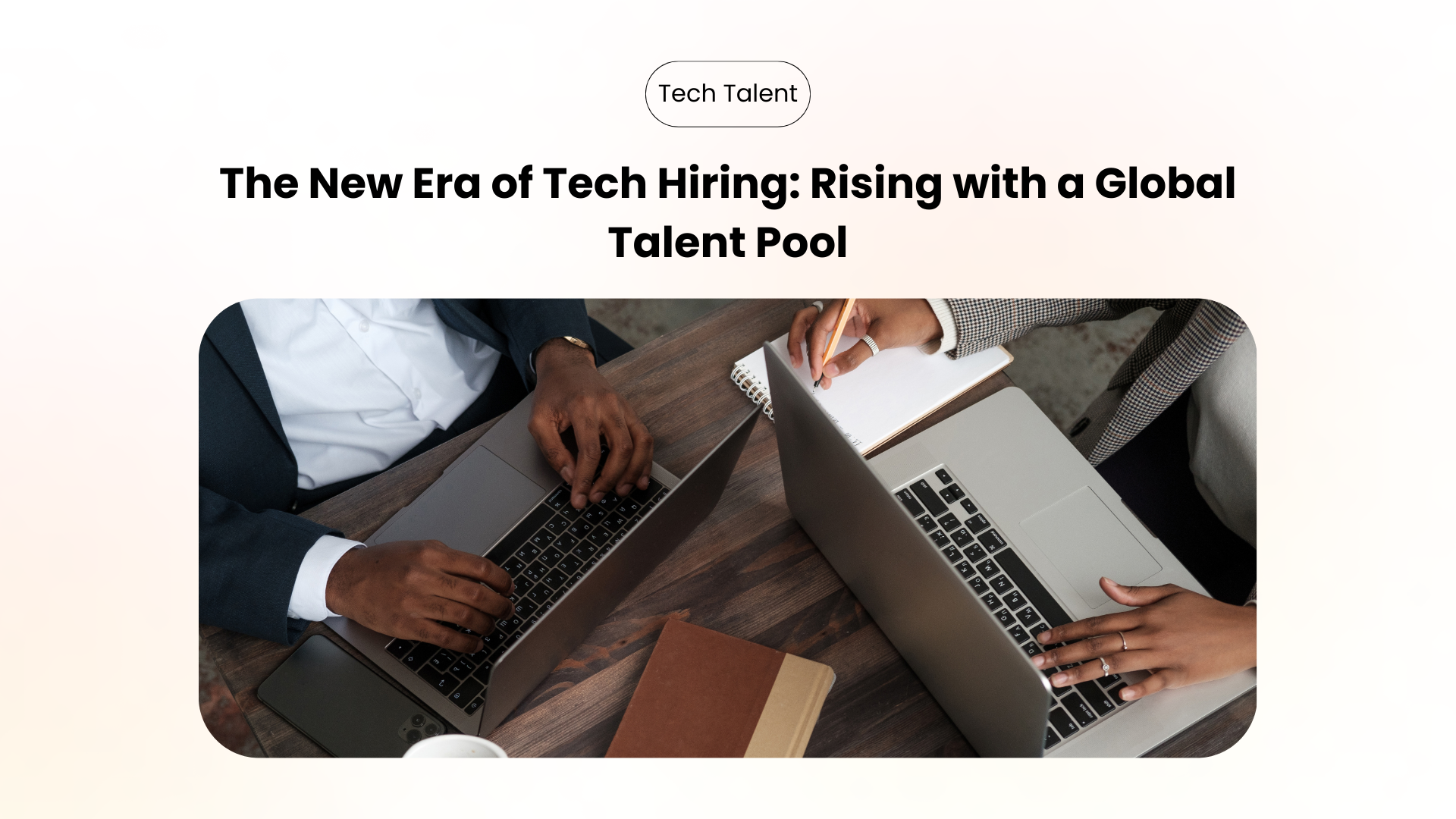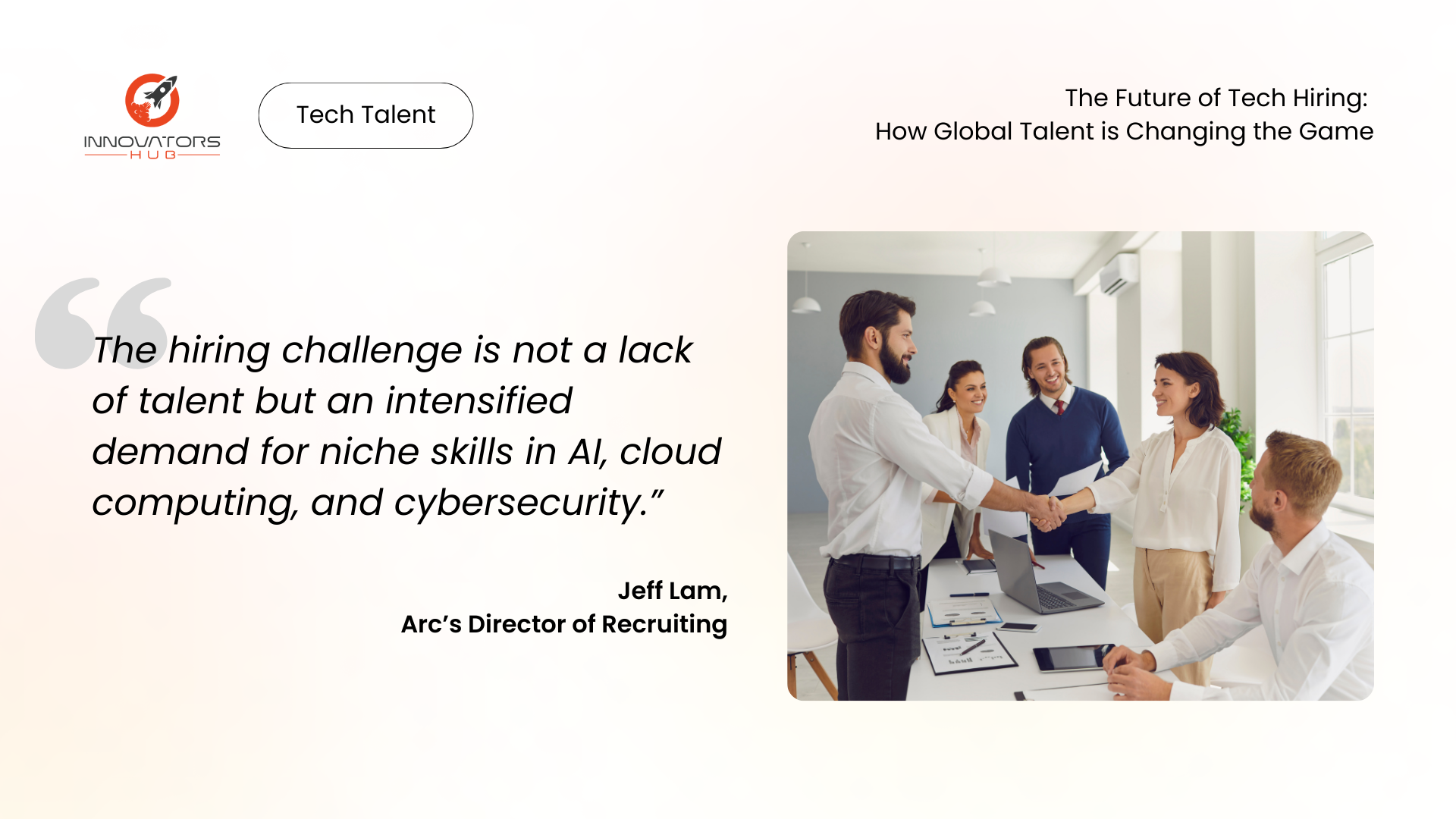The demand for specialized tech talent is at an all-time high, and businesses are rethinking traditional hiring models to stay ahead. While local talent pools are becoming increasingly competitive, companies are turning to global hiring to access niche expertise in AI, cybersecurity, and cloud computing. By tapping into specialized talent markets worldwide, businesses can not only bridge skill gaps but also optimize costs and improve scalability. This shift marks a new era in workforce strategy – one that prioritizes skills over location, flexibility over rigid structures, and innovation over stagnation.

Why It’s Not Just About “More Talent”?
Hiring in tech has shifted dramatically. It’s no longer about a general talent shortage – it is about the increasing demand for highly specialized expertise. As Jeff Lam, Arc’s Director of Recruiting, states, “The hiring challenge is not a lack of talent but an intensified demand for niche skills in AI, cloud computing, and cybersecurity.”
Even as industry giants like Intel, Cisco, and Apple downsize, companies continue to struggle with filling critical skill gaps. The need for experts in cutting-edge fields has never been greater, and businesses must rethink their hiring strategies to remain competitive.

The Shift to Global Hiring
One major trend shaping the hiring landscape is global hiring. With remote work becoming the norm, companies are expanding beyond local markets to source top-tier talent. This shift is not just about cost reduction but about accessing specialized skills that are scarce in certain regions.
Why Global Hiring Works
Platforms like specialized talent marketplaces help companies connect with professionals across borders, ensuring they find the right expertise faster and more efficiently. Traditional job boards often yield a flood of generic applicants, making it challenging to locate true experts. According to Multiplier’s hiring data, US-based companies are increasingly sourcing talent from India, Vietnam, Canada, Indonesia, Brazil, Pakistan, and the UK to bridge the skills gap.
Why Remote and Freelance Talent is the Future
Companies are embracing remote and freelance professionals as a strategic approach to workforce agility. This approach allows businesses to:
- Optimize costs by hiring from regions with lower living expenses.
- Scale efficiently based on project demands without long-term commitments.
- Access niche expertise on-demand without the overhead of full-time hires.
As Jeff Lam highlights, “Many companies turn to freelancers before making full-time hires, given market uncertainties. It’s hard to predict budgets, so companies prefer hiring project-based specialists first.”
Key Takeaways: The Future of Tech Hiring
Hiring managers are prioritizing specialized skills in high-demand fields such as Blockchain, DevOps, and Data Science, with AI expertise becoming increasingly essential across industries. The future of hiring is global and skills-based, where companies focus on talent over geographic location, enabling them to tap into a wider and better-equipped talent pool.
Additionally, companies that embrace flexibility and dynamic hiring strategies will have a competitive edge, allowing them to scale and adapt efficiently in an ever-changing job market. Businesses that adopt global and freelance hiring strategies will be in the best position to thrive in the years ahead.
About Innovators Hub Asia
Innovators Hub Asia is an innovative technology system that combines 2,000 top innovators and tech talents and cutting-edge technology to deliver AI-driven solutions tailored to the business’s unique challenges. It aims to revolutionize business operations and accelerate growth through a wide range of services, including aiLabs, TalentCloud, Tech Venture Builder, and Co-Innovation Builder.






